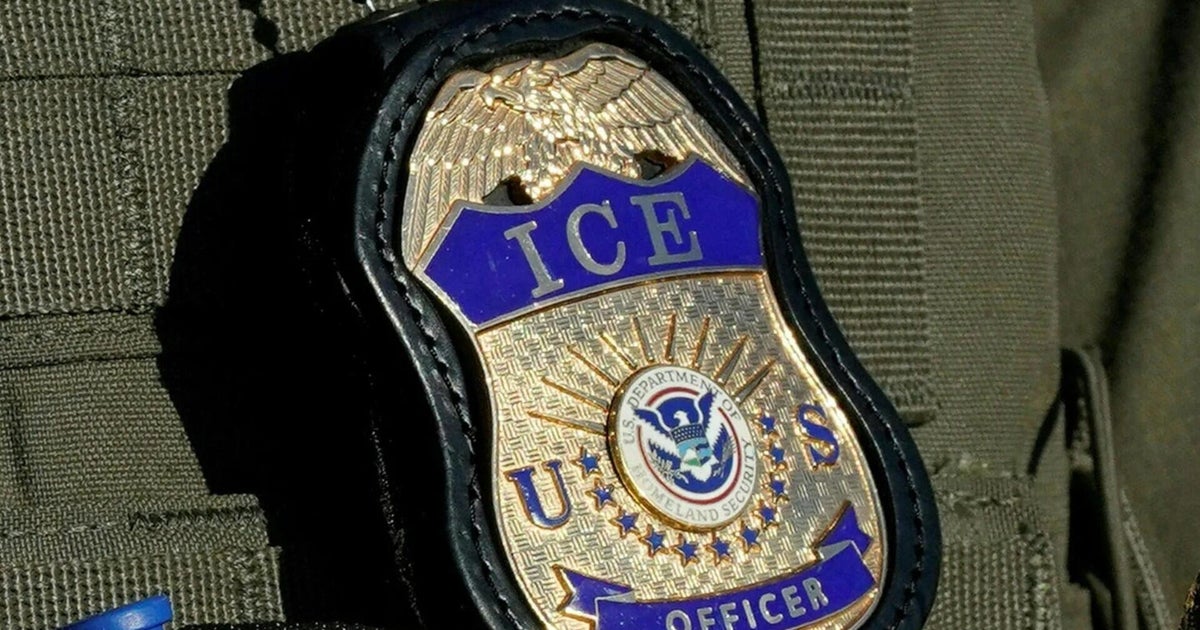
The Trump administration has conducted 40 removal flights to the Venezuelan capital of Caracas, deporting nearly 8,000 Venezuelan nationals since March, according to senior Department of Homeland Security officials who spoke to CBS News on the condition of anonymity.
The flights began after Venezuela agreed in March to resume repatriation flights, and have continued amid heightened U.S.-Venezuelan tensions in recent weeks.
U.S. Immigration and Customs Enforcement (ICE) deported approximately 140 individuals back to Venezuela in its latest removal flight on October 15. Last Wednesday’s flight included at least seven individuals with criminal histories, including alleged members of the Tren de Aragua gang and sexual predators, according to DHS.
Among those deported include Jefferson Bracho Haddad, an alleged Tren de Aragua gang member that a DHS spokesperson tells CBS News had six criminal arrests, including for larceny and drug possession. The agency spokesperson added that the flight also returned Angelo Dennis-Jesus Ainaga-Jaspe, convicted of multiple weapons offenses, plus Diego Alejandro Mavarez Arocha, convicted of sexual assault.
DHS has repeatedly spotlighted removals of individuals with criminal histories as part of an ongoing effort by the Trump administration to deport undocumented migrants the government determines pose threats to public safety.
“These individuals, including confirmed Tren de Aragua gang members, sexual predators, and violent offenders, should have never been in our country in the first place,” said DHS Assistant Secretary Tricia McLaughlin in a statement provided to CBS News, adding that an estimated 2 million undocumented immigrants have left the U.S. since January.
McLaughlin did not specify how many of those individuals were believed to have departed the U.S. voluntarily, versus those who have been deported. The vast majority would have needed to leave without making contact with DHS to reach that total. According to internal government figures previously obtained by CBS News, over the first six months of President Trump’s second term, the administration deported nearly 150,000 people and recorded 13,000 who self-deported.
According to senior DHS officials, the deportations to Venezuela have occurred alongside the intensified U.S. campaign against drug trafficking and transnational crime in South America. The Trump administration has carried out at least 10 known strikes on suspected narcotics vessels over the past two months, including two this week off Colombia’s Pacific coast. The most recent strike, conducted overnight, targeted a vessel allegedly operated by Venezuela’s Tren de Aragua gang in the Caribbean Sea.
Defense Secretary Pete Hegseth said it was “a lethal kinetic strike” in international waters, marking the first night strike of the campaign. “Six male narco-terrorists were aboard the vessel during the strike … all six terrorists were killed and no U.S. forces were harmed,” Hegseth said.
Trump administration officials say the combination of targeted strikes and deportation flights reflect a multi-pronged strategy to disrupt the Tren de Aragua gang and other organized criminal networks, which have been linked to drug trafficking and violent crime throughout the Americas.
The U.S.-Venezuela repatriation deal, which allows the flights to Caracas, has faced scrutiny from human rights organizations, though Trump administration officials point to the diplomatic deal as an important tool in reducing the influence of transnational criminal gangs within the United States.
Meanwhile, the U.S. military is sending an aircraft carrier strike group to the waters off Latin America, part of a buildup of U.S. forces in the region.
The military maneuvers have drawn the Venezuelan government’s ire. Venezuelan President Nicolas Maduro ordered new military exercises last week, and he said he’s prepared to declare a state of emergency earlier this month, accusing the U.S. of “aggression.”
